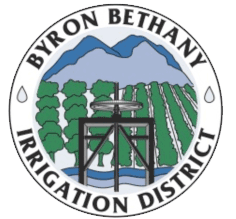Sacramento, CA (February 25) – The U.S. Bureau of Reclamation (USBR or Reclamation) announced on Tuesday increased water supply allocations for the Central Valley Project (CVP).
Reclamation issued an initial water supply allocation of 35% for South-of-Delta CVP contractors, including the Byron-Bethany Irrigation District (BBID), and an initial 75% allocation for its South-of-Delta Municipal and Industry (M&I) contractors, including those in the BBID’s service area.
The 35% South-of-Delta allocation is up from last year’s 15% allocation, with similar hydrological conditions. BBID is encouraged by the USBR’s initial action this year, but recognizes much remains to be done to properly balance the needs of California’s people, farms and the environment – and maximize the state’s ability to capture, store and distribute water supplies.
Below is a portion of Reclamation’s announcement, which can be read in full on its website:
The initial allocation to be provided to California farmers on the west side of the Central Valley south of the Sacramento-San Joaquin Bay-Delta is more than twice what the initial allocation was in 2024, a year with similar hydrology. In addition, the Trump administration is investing more than $315.5 million to create new water storage at the future Sites Reservoir and at the existing San Luis Reservoir.
Reclamation, as directed through President Trump’s Executive Order 14181, has worked to maximize water supply, particularly for south-of-Delta contracts. Reclamation continues its dedicated efforts to deliver more water and produce more hydropower as a commitment to California farmers and communities. Reclamation will continue to maintain full pumping whenever possible at the Jones Pumping Plant to move water to parts of California where it is needed most and provides the greatest economic value to the entire country.
Water supply allocations are based on an estimate of water available for delivery and reflect current reservoir storage, precipitation, and snowpack in the Sierra Nevada, as well as contractor-rescheduled water from the last water year.
“Recent atmospheric rivers and the good condition of most of our reservoirs going into this water year have benefited our water supply outlook; however, the San Joaquin Basin has experienced critically dry conditions this winter,”said California-Great Basin Regional Director Karl Stock. “Initial allocations reflect this significant variation across the Sacramento and San Joaquin valleys.”
Read more here: https://www.usbr.gov/newsroom/news-release/5107.
